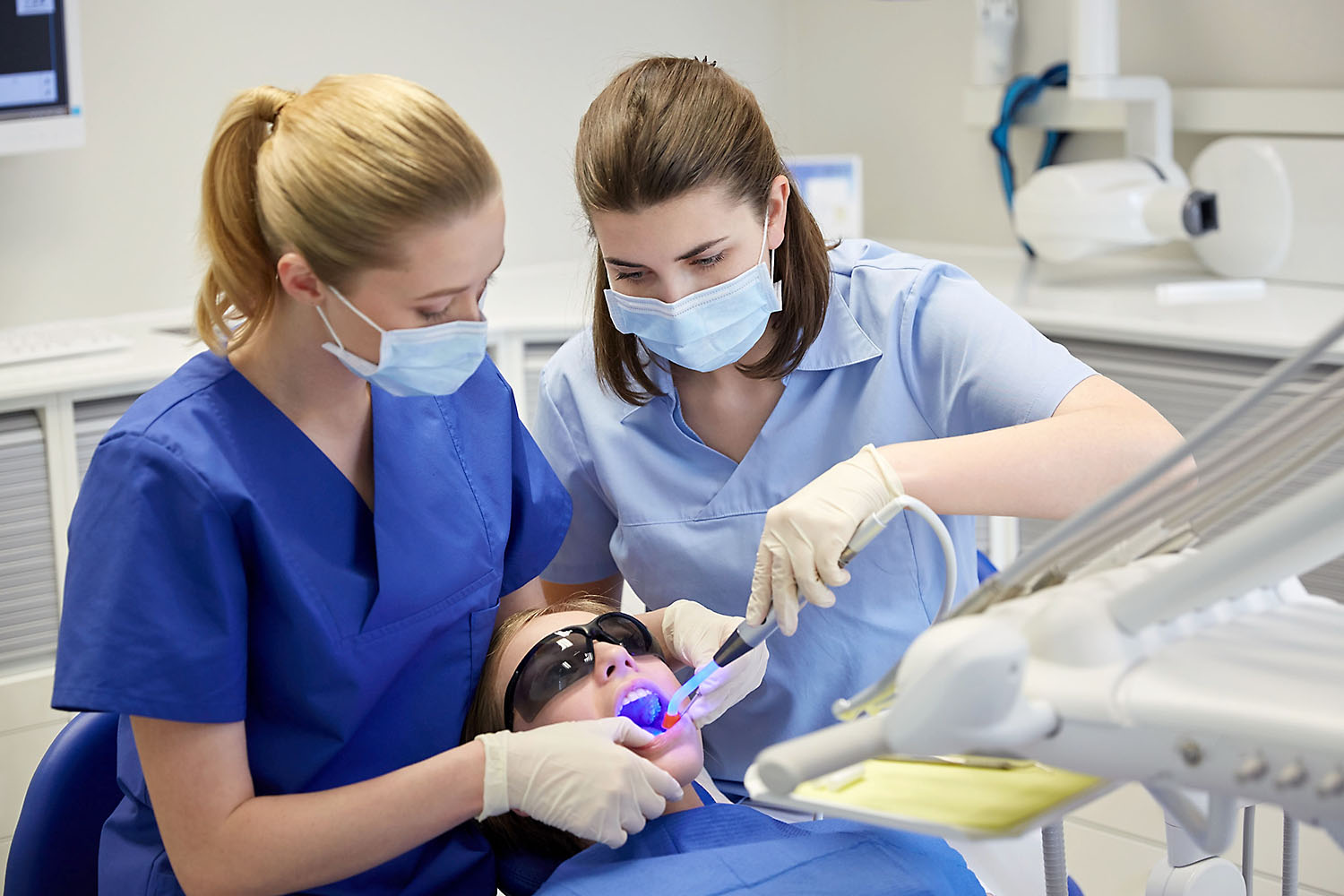The Advantages of Regular Checkups to a Dentist Eugene Oregon
The Advantages of Regular Checkups to a Dentist Eugene Oregon
Blog Article
Explore the Variety Of Dental Issues Dentists Frequently Deal With
From the widespread trouble of tooth cavities triggered by bacterial activity to the more dangerous progression of gum tissue condition, dental specialists must be proficient at very early detection and intervention. Tooth level of sensitivity, often resulting from worn enamel, includes an additional layer of complexity, while the very early identification of dental cancer cells can be life-saving.
Tooth Cavities and Tooth Degeneration
Dental caries, likewise understood as oral decays, are caused by the demineralization of tooth enamel due to acid-producing germs in the mouth. If left unattended, tooth cavities can lead to substantial oral issues, including infections and tooth loss.
To diagnose dental caries and dental caries, dental experts use a mix of visual examinations, dental X-rays, and occasionally laser fluorescence tools. Therapy options differ depending on the extent of the degeneration. Early-stage tooth cavities could be taken care of with fluoride treatments that help remineralize the enamel. For advanced degeneration, a dentist might need to remove the compromised cells and bring back the tooth with fillings made from products such as composite material, amalgam, or porcelain.
Preventative actions are critical in combating tooth cavities and tooth decay. Regular oral examinations, appropriate cleaning and flossing techniques, and a balanced diet regimen low in sugary foods and beverages are basic practices that sustain oral wellness and reduce the danger of dental caries.
Periodontal Disease

Periodontitis takes place when plaque, a sticky movie of microorganisms, solidifies right into tartar and builds up below the gum line. This causes the gums to retreat from the teeth, creating pockets that come to be contaminated. As the body's immune system battles the bacteria, the bone and connective tissue that hold teeth in position are damaged down. The threat factors for periodontal condition include poor oral hygiene, smoking cigarettes, diabetes, and genetic proneness.
Dental professionals diagnose gum tissue disease via clinical assessment and periodontal penetrating to measure pocket depths around the teeth. Treatment may include scaling and root planing to eliminate tartar and germs from tooth surface areas and underneath the gums. In severe cases, surgical interventions like flap surgical procedure or bone grafts are necessary to restore oral health. Keeping correct oral hygiene and normal dental exams are important for stopping gum tissue condition.

Tooth Level Of Sensitivity
Beyond gum disease, one more usual dental concern that people frequently encounter is tooth level of sensitivity. Characterized by a Full Article sharp, transient discomfort in action to stimuli such as hot, cold, pleasant, or acidic foods and drinks, tooth level of sensitivity can considerably influence a patient's quality of life.
In addition, oral procedures, split teeth, and gum condition can subject the dentin. To minimize tooth level of sensitivity, dental experts might advise making use of tooth paste formulated for sensitive teeth, fluoride treatments to enhance enamel, or oral bonding to cover exposed dentin.
Ultimately, attending to tooth sensitivity needs a comprehensive method that consists of both safety nets and targeted therapies to minimize pain and safeguard the dental structures.
Dental Cancer Cells
Dental cancer cells, a possibly serious and severe problem, typically flies under the radar in regular dental care conversations. This kind of cancer cells can impact any type of part of the oral dental caries, including the lips, tongue, cheeks, flooring of the mouth, hard and soft tastes buds, sinuses, and throat. Early detection is vital for successful treatment, yet several situations are identified at innovative stages due to subtle first signs.
Misaligned Bites
Misaligned bites, additionally understood as malocclusions, are a typical dental issue that can dramatically influence both oral wellness and overall top quality of life - eugene dentist. These conditions occur when the top and lower teeth do not straighten properly, causing troubles in biting, eating, and even speaking. Malocclusions can be categorized into various types, consisting of overbites, underbites, crossbites, and open attacks, each presenting unique challenges that call for tailored treatment strategies
The root causes of misaligned attacks are diverse and can consist of hereditary elements, early loss of baby teeth, thumb sucking, and injuries to the jaw. Signs often consist of discomfort or discomfort in the jaw, constant attacking of the internal cheeks, and an increased danger of dental caries and periodontal disease as a result of problem in maintaining oral health.
Orthodontists and dental professionals employ a series of treatments to resolve misaligned attacks, from clear aligners and typical braces to advanced operations in extreme instances. Early diagnosis and therapy are essential to stop issues such as temporomandibular joint (TMJ) disorders and uncommon wear on More Info teeth. Through detailed evaluation and tailored therapy plans, dental professionals play an essential role in fixing malocclusions and improving people' oral function and aesthetic appeals.
Conclusion
Dental practitioners deal with a range of dental concerns, each with distinct challenges and treatment methods. Cavities and dental caries result from bacterial try here activity that compromises tooth enamel, while periodontal disease can escalate from gingivitis to severe periodontal conditions. Tooth level of sensitivity involves pain from thermal stimuli, demanding details treatment. Early detection of dental cancer is crucial for reliable intervention. Misaligned bites influence both dental health and wellness and lifestyle, commonly needing medical or orthodontic remedies to rectify.
To identify dental caries and tooth degeneration, dental professionals utilize a combination of visual exams, dental X-rays, and occasionally laser fluorescence tools.Beyond gum disease, one more typical dental concern that clients frequently encounter is tooth sensitivity. Additionally, oral procedures, split teeth, and gum illness can reveal the dentin. To minimize tooth level of sensitivity, dentists might suggest utilizing tooth paste formulated for delicate teeth, fluoride therapies to strengthen enamel, or oral bonding to cover revealed dentin. Cavities and tooth degeneration result from microbial task that jeopardizes tooth enamel, while gum disease can intensify from gingivitis to extreme gum problems.
Report this page